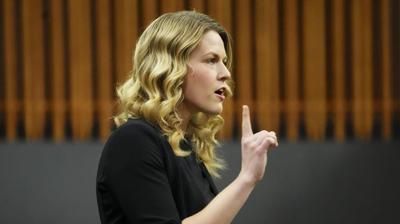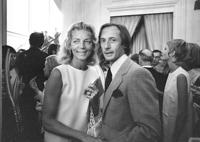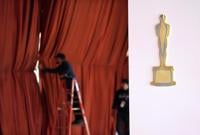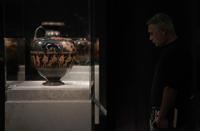OTTAWA - Conservative MP Rachael Thomas has apologized after drawing criticism from other members of Parliament for asking Heritage Minister Pascale St-Onge to answer questions in English at a committee meeting.
In a written letter to the chair of the Canadian Heritage Committee, Thomas on Thursday apologized for her comments earlier in the day. She asked that the apology be sent to the minister and other members of the committee.
"As you know, Conservatives support official bilingualism, the preservation of the French language in Canada and the right of Canadians to communicate in the language of their choice," she wrote.
The apology came not long after strongly worded comments from the leader of the Bloc Québécois, Yves-François Blanchet.
"Good old 'Speak White,'" he said, referring to a 1968 French-language poem that condemned the oppression of French-speaking Canadians.
Blanchet characterized Thomas's attitude as: "I am an English Canadian, therefore I am somewhat superior to you. You should speak English to me," adding that if she wants to hear English, simultaneous translation services are available.
"It's a lack of respect, which does not surprise anybody in Quebec," he said.
Thomas had made the comments during a committee meeting on Thursday morning as she began asking St-Onge a second round of questions.
"Minister, I noticed that you answer my questions in French, but other English questions you answer in English, if they're from your Liberal colleagues," Thomas said.
"I realize it's completely your choice, we're a bilingual country, but if at all possible, I would love to have it in English."
Before Thomas could finish her sentence, she was cut off by other members of the committee calling for a point of order — when members believe the rules or procedures of the House of Commons have been broken — and saying her comments were inappropriate.
"What I'm hearing right now is insulting for Quebecers, for francophones," said Bloc Québécois heritage critic Martin Champoux.
Members of the committee and witnesses testifying before it can speak in the official language of their choice, he said, adding that the committee's interpretation service is "extremely effective."
His comments were echoed by Liberal MP Lisa Hepfner, who said she doesn't think the committee can ask people to speak in one language or the other, and NDP heritage critic Peter Julian, who said Thomas's comments put Canada's bilingualism into question, which was "offensive to everyone."
Given the chance to speak again at the committee hearing, Thomas defended her statement.
"My observation was that the Liberal member was afforded the opportunity to be answered in English and I was not afforded that same opportunity. I recognize that we're a bilingual country, and by all means you can answer in either language. I'm just curious if you would be willing to answer in English," she said.
Those comments drew a new round of indignation from the other members of the committee.
"The fact that the Conservative party is demanding that a member only use one language, to me, is just unacceptable," said Liberal MP Michael Coteau.
"And it needs to be noted that should never happen at committee, it should never happen in the House of Commons and it's just something that goes against our very values as Canadians."
Committee chair Hedy Fry repeated several times that the points of order were valid and that the minister could speak in the official language of her choice.
Julian, given another chance to speak, said the principle of official bilingualism is that people can speak in the language they're most comfortable in and that to question that idea is "absolutely reprehensible."
Thomas's comments were a sign of how "radical and extreme" the Conservative party has become since Pierre Poilievre took over, Julian added.
Thomas then asked her question, about how much of the $100 million Google will pay to Canadian news outlets as part of a deal with the federal government will go to the CBC.
St-Onge replied in French that she was answering in her first language because she has "a great deal of respect for my colleagues' questions" and she wanted to answer them clearly with the right vocabulary.
Under the Canadian Constitution, French and English are both official languages and have equal status in parliamentary institutions and the federal government.
The linguistic controversy comes just days after Bloc MP Mario Simard, a unilingual francophone, accused Conservative MPs of violating his language rights by talking over other members of the natural resources committee as a part of a filibuster. Simard said interpreters stopped translating due to the cacophony, preventing him from following what was happening.
This report by Ďă¸ŰÁůşĎ˛ĘąŇĹĆ×ĘÁĎ was first published Nov. 30, 2023.








































